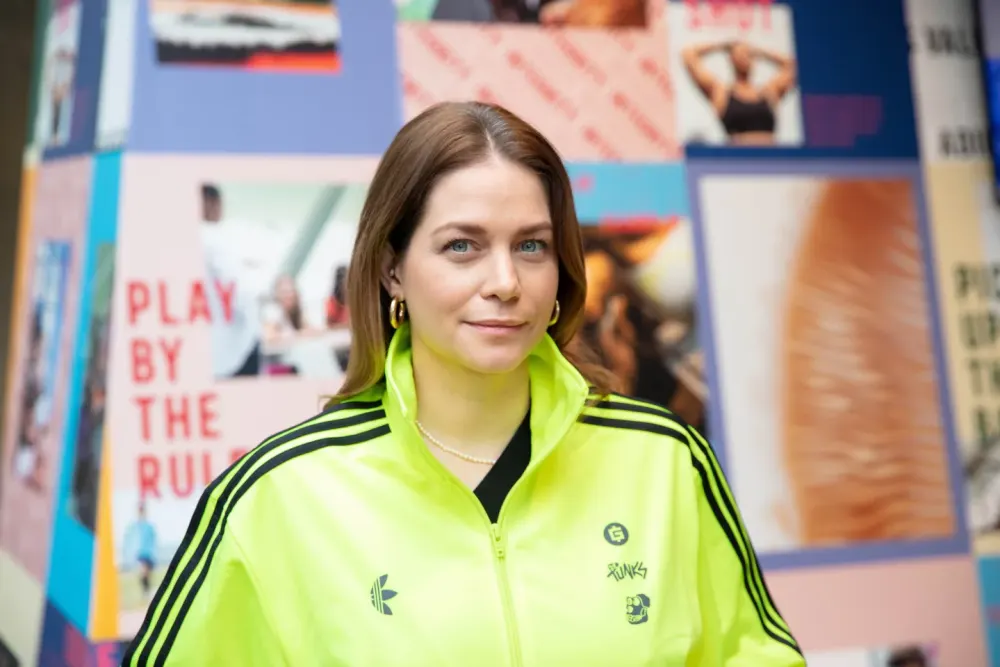
Discover How the adidas DEI Strategy Enables the Core Value of Respect in the Workplace
Following the launch of adidas’ Diversity, Equity and Inclusion Strategy, Vanessa Abrahams-John reflects on the importance of respect in the workplace.

With the recent launch of our new Diversity, Equity & Inclusion (DEI) strategy, adidas is reimaging its DEI journey to focus primarily on our people, our culture and accountability for our managers.
As we begin this, I’ve been reflecting on the world we live and work in today, and the critical role respect can play in transforming how we play best with each other, with our partners and with our consumers.
"When people feel respected and valued, they commit, create and innovate at their highest potential."
DEI has always been a part of our DNA and rich heritage since our founder Adi Dassler focused on innovation as a key driver to success. But at this time in our journey, we have to reimagine and broaden our embrace of DEI to help us win and enhance our competitive advantage in the marketplace.
I joined adidas in May this year, in part because I was already an excited consumer who loved the brand and wore adidas in my regular life. My kids play soccer and that’s all they’ve ever worn. But I also jumped at the opportunity to come here because I wanted to help adidas embed a culture of fairness, inclusion and respect in every team, in every country. I want to drive inclusion by meeting each person and each region where they are, so we can bring everyone along.
Although adidas has always had a strong focus on the DEI space – what we need now is to operationalize inclusion with the tools, learnings, KPIs and strategy to share with our people. That’s something I’m bringing to the conversation, with clear data as our baseline. When we’re building a culture of respect in the workplace, I want everyone to feel a sense of inclusion and to see the value that culture brings to them.
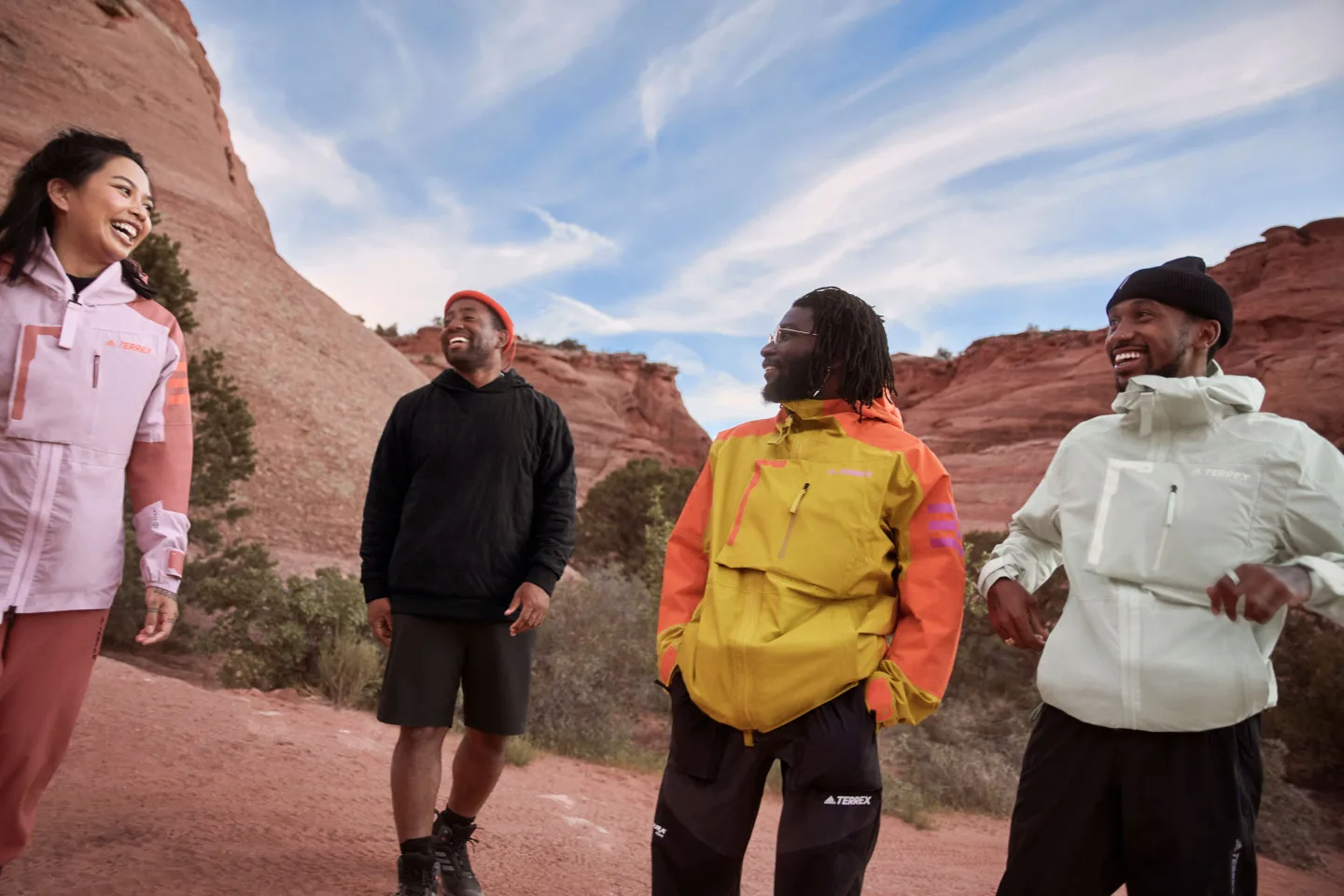 There’s a lot going on in our volatile world, that’s why it’s more important than ever to follow your purpose.
There’s a lot going on in our volatile world, that’s why it’s more important than ever to follow your purpose.
In a volatile world, respect in the workplace is more important than ever
We’re doing this at just the right time because the world is volatile, uncertain, complex and ambiguous. It’s an environment in which we need DEI more than ever. Our research shows that post-COVID, people are feeling stressed or uncertain. Employees have changed and are seeking to work for organizations that align with their internal values. We are all looking for purpose, for alignment with our own values, and for something bigger than ourselves to hold onto. More than anything, employees want to feel respected and treated with dignity – regardless of their differences
"Respect can be taught in the workplace. It is an intentional act for which we should all be held accountable."
As with DEI, it’s important that we embed respect in a consistent way. We can do that by explaining more effectively what respect means in the context of our workplace, and that we will each be accountable.
When you have respect in the workplace, people feel like they belong and can give their best work. That’s how respect helps to drive a high performance and high engagement culture that we need to win the game.
In a culture of respect, all players feel valued
At adidas, we believe that diverse perspectives and a culture of fairness and respect add value to our business. However, the value of a diverse and respectful culture is seldom properly explained or understood. There’s often a fear factor, that if someone gains, others lose out, and that’s something to which we as DEI professionals must respond.
Diversity is a noun, the degree of ‘differentness’ or ‘sameness’ within our organization. Essentially, it’s who we are.
I view inclusion as a verb, because it’s the action we take inside an organization to make people feel welcome and respected. It’s how we ensure people feel they can be themselves, work and give back. Respect is an important component in the intentional actions within inclusion.
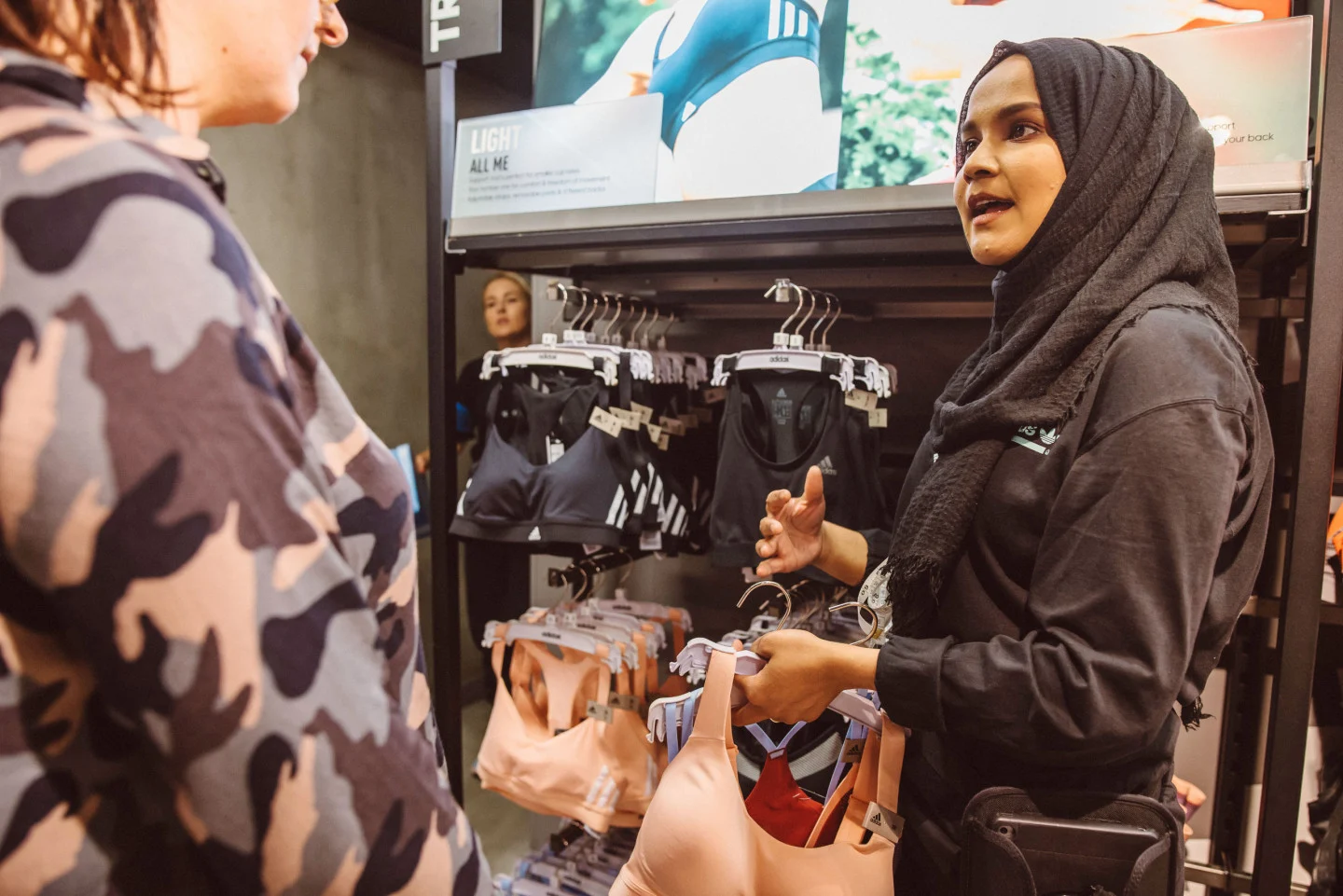 How adidas shows up for our consumers is really important for me and it starts with bringing diverse perspectives into all areas of our business.
How adidas shows up for our consumers is really important for me and it starts with bringing diverse perspectives into all areas of our business.
The E in DEI stands for both equality and equity. Equality is giving everybody the same opportunities, whereas equity is making sure that people are starting from the same point. It’s really taking a deeper look to make sure that you’re removing the barriers that have helped certain groups back.
What’s in it for us?
Research shows that companies with diverse opinions are more successful and sustainable for the future
"Having different voices in the room brings a richness to the discussion. In companies that embrace diverse perspectives, people are more likely to perform at their best."
I’ve seen for myself that companies don’t survive very long if groupthink is widespread. Once you stop listening to other perspectives, it’s very difficult to gain consumer insight.
At adidas, we sell sports apparel and footwear to a diverse, global community. Without diverse perspectives, we cannot tap into that consumer insight, and that is the single most important business reason for having DEI in a brand.
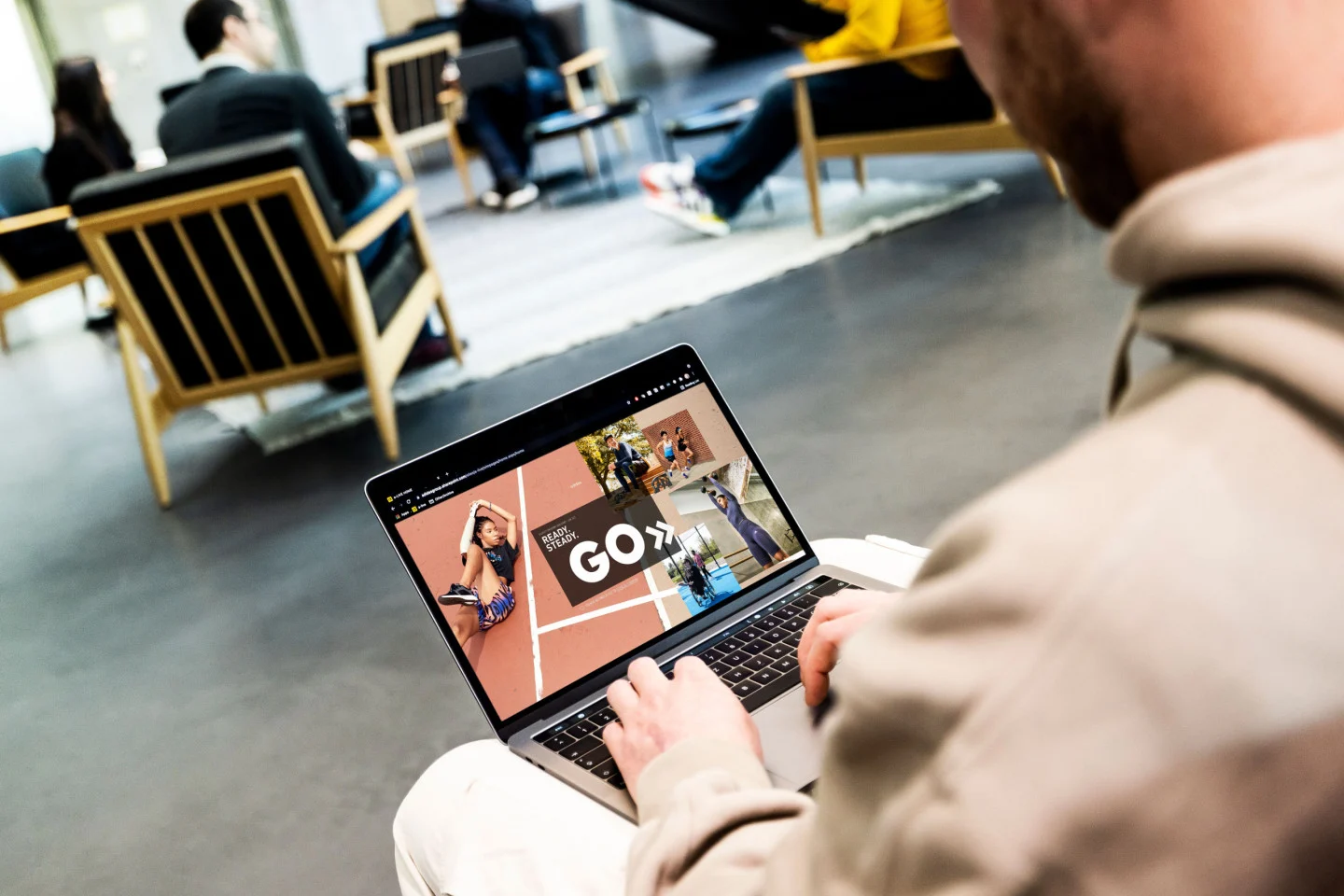 We must embrace DEI and respect as a value that we work by, intentionally, every day.
We must embrace DEI and respect as a value that we work by, intentionally, every day.
Consumers are the heart of our business. I visited some of our retail stores to experience what it feels like to be a consumer of the brand. If we don’t feel respected and engaged, that will affect how we treat our consumers. My job is to create the framework that brings a sense of belonging, engagement and motivation that’s so vital among our teams. If we have that, we will innovate and interface with our consumers in a way that delivers better results for the business. To achieve this, we need to ensure that respect lies at the heart of all we do.
How we’re moving DEI forward
Every company’s strategy for DEI should be unique to its population. You have to meet a company where it is, to look at their talent profile where they’re located. My previous company was a B2B environment, so we focused on talent. At adidas, we have talent, a brand and consumers to consider, too. We can also be bolder, because we hire more creatives, and there are more roles that have gender balance.
Going forward, we will focus heavily on equity and inclusion. We have just launched our new DEI strategy, and soon an inclusive leadership program. Having respect as a value of our company supports all of those efforts.
To inform our new DEI strategy, we asked all of our employees four questions related to their diversity dimensions. Their anonymous responses informed the strategy, so it’s their voice and it’s unique to adidas.
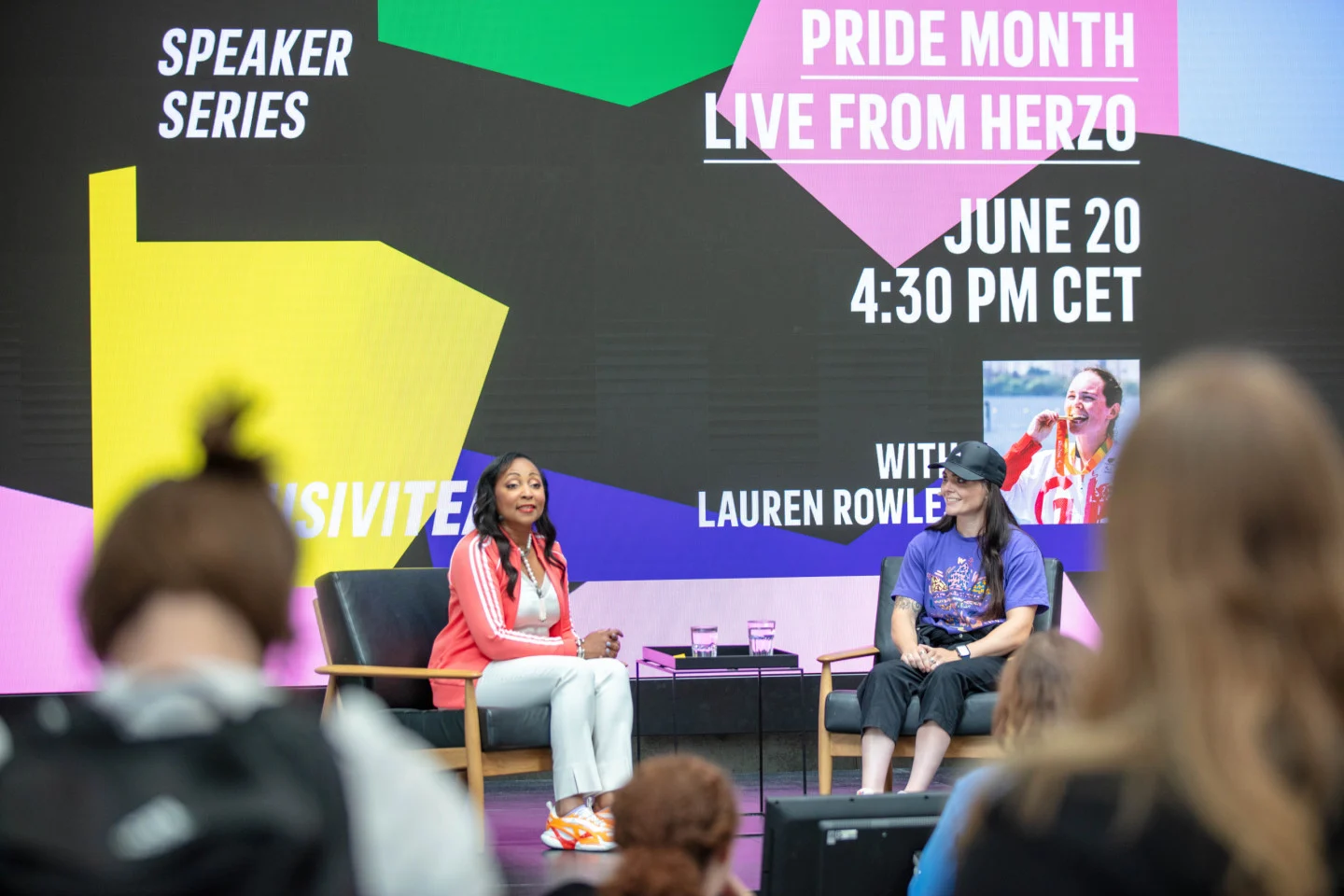 Events to highlight different diversity dimensions are something I’m very proud to host at our HQ in Germany.
Events to highlight different diversity dimensions are something I’m very proud to host at our HQ in Germany.
We will work on things like pipeline building and sponsorship programs for underrepresented groups who are not currently represented at the top end of our organization. We will develop training programs at every level, with different toolkits for different populations. It will be the same message, the same pillars, the same tactics, but shared differently. We have hourly workers and salary workers, so we have to be nimble and agile in how we deliver that message.
Shooting for steady progress
There is no silver bullet for DEI – it’s an ongoing process. It’s not just about diversity at the top. We have to manage all three elements simultaneously. I want to create a holistic strategy that’s global – global standards, global policies, global KPIs.
We will measure the progress of our approach in several ways:
- Are we getting the best talent in every region?
- Do we have a culture that fosters engagement and high performance?
- Are we holding people accountable for the right behaviors?
In two to three years, I’d like to see leaders being held accountable for DEI. I also want to see less turnover for certain groups and more representation based on talent availability in certain countries.
I try to remind myself that progress doesn’t happen overnight. Progress is not sustainable if you force people along. We have to train, lay the groundwork, build the foundations, build the walls, then put the roof on top. It’s steady work, and it all starts with the values of our organization.
"Progress is not sustainable if you force people along. We have to train, lay the groundwork, build the foundations, build the walls, then put the roof on top."
The most important thing I have learned is that people don’t need fireworks, bells and whistles, or trampolines in the hallway. They need transparency, honesty and leaders to do what they said they would, and who stand as examples of respect in the workplace. As long as we put respect at the heart of what we do and deliver on our DEI promises, then we will win even bigger because we played fair.
